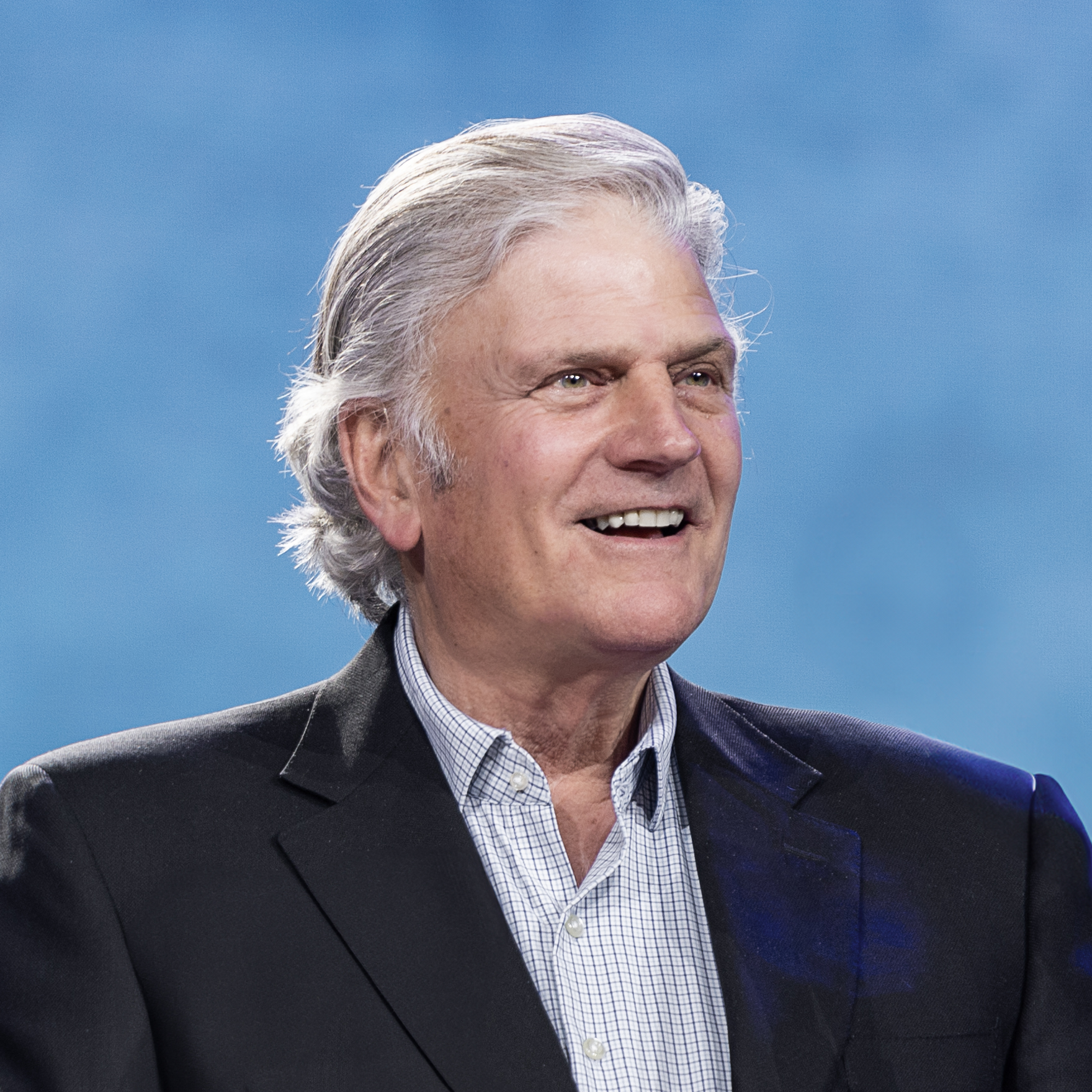Defending Faith: Franklin Graham’s Fierce Fight for Religious Freedom in a Changing World
Franklin Graham, the son of the legendary evangelist Billy Graham, has made a name for himself as one of the most vocal proponents of religious freedom in America and around the world. Over the years, he has become a leading figure in the evangelical Christian community, using his platform to speak out against what he perceives as the erosion of religious liberties, particularly in the West. In a world where secularism is on the rise and cultural norms are shifting, Franklin Graham’s staunch defense of Christianity and the right to practice religion freely has made him both a celebrated and controversial figure.

A Commitment to Religious Freedom
At the heart of Franklin Graham’s message is his unwavering belief in the fundamental right to religious expression. For Graham, religious freedom is not just a legal issue; it is a moral and spiritual imperative that Christians must protect. He argues that the freedom to practice one’s faith is essential to human dignity and the foundation of a thriving society. Whether through his work with Samaritan’s Purse or his leadership at the Billy Graham Evangelistic Association, Graham has consistently used his influence to promote the message that the right to religious freedom is under threat.
Graham’s concern over religious freedoms is not limited to the U.S. He has been a vocal advocate for Christians in countries where religious persecution is rampant. His organization, Samaritan’s Purse, regularly provides humanitarian aid to persecuted Christian communities in the Middle East, Africa, and Asia, ensuring that their rights are recognized and upheld. In his public speeches and social media posts, he often highlights the plight of Christians who face violence and imprisonment simply for practicing their faith, calling on the global community to take action to protect them.

Opposition to Secularism and Progressivism
In the U.S., Franklin Graham’s advocacy for religious freedom has put him at odds with progressive movements and secular forces. He believes that a growing secular agenda threatens not only Christianity but the very fabric of American society. Over the years, Graham has spoken out against what he views as an increasing intolerance toward religious expression, particularly in public spaces. From opposition to the removal of Christian symbols from public buildings to the fight over the inclusion of religious teachings in schools, Graham has consistently raised his voice in defense of religious rights.
One of the most contentious issues he has addressed is the legalization of same-sex marriage. As a strong proponent of traditional Christian values, Graham has publicly condemned same-sex marriage, arguing that it undermines the sanctity of marriage as defined in the Bible. His opposition to the LGBTQ+ rights movement has drawn sharp criticism, with many accusing him of being intolerant or discriminatory. Despite this, Graham has remained steadfast in his position, citing his belief in the biblical definition of marriage and the importance of upholding Christian teachings in society.
Graham’s outspoken stance on these issues has led to clashes with secular organizations and political leaders who advocate for a more inclusive society. However, he continues to argue that the rights of Christians to express their faith must be protected, even if it means going against the prevailing social trends. In his view, religious freedom is a cornerstone of democracy, and the erosion of this right is a grave threat to the nation’s moral and cultural integrity.

The Role of the Church in Society
For Franklin Graham, the defense of religious freedom is not just about personal rights but also about the role of the church in society. He believes that the church has a unique and crucial role to play in shaping the moral and ethical framework of society. In his speeches and writings, Graham often emphasizes the importance of the church standing firm in its beliefs, particularly in the face of growing secularization and cultural changes. He calls on Christians to be bold in their faith, to resist the pressure to conform to secular values, and to stand up for what they believe is right.
In a world where many see religion as a private matter, Graham advocates for a public expression of faith. He believes that Christianity should not be confined to churches and private homes but should be lived out in every area of life — from politics and business to education and culture. For Graham, defending religious freedom is not just about protecting the right to worship but about ensuring that Christianity remains a visible and active force in society.
Challenges in Today’s World
As the world becomes more globalized and interconnected, the challenges to religious freedom grow more complex. In some countries, Christians face extreme persecution, while in others, there is a growing trend toward secularism and the marginalization of religious beliefs. Franklin Graham’s advocacy for religious freedom has never been more urgent, as both domestic and international threats to Christianity continue to rise.
In the U.S., the rise of political correctness and cancel culture has made it increasingly difficult for individuals to express their religious views without facing backlash. Public figures like Graham, who hold conservative Christian views, are often vilified in the media and by progressive groups. This has led to a growing sense of isolation and alienation among conservative Christians, who feel that their rights are being systematically eroded. In this context, Franklin Graham’s bold stance in defense of religious freedom serves as a rallying cry for many who fear the loss of their faith-based values.
A Polarizing Figure
While Franklin Graham is widely respected in evangelical Christian circles, his views have made him a polarizing figure in American society. His defense of traditional values, particularly his stance on issues like same-sex marriage and abortion, has drawn significant criticism from secular and progressive groups. Many see his rhetoric as divisive and harmful, accusing him of using religion as a tool for political gain.
Despite the backlash, Graham remains resolute in his convictions. He argues that the defense of religious freedom is not just about protecting Christianity but about safeguarding the right of all people to practice their faith without fear of government interference. His advocacy has made him one of the most prominent voices in the fight for religious freedom, and his influence continues to grow as the debate over the role of religion in society intensifies.
Conclusion
Franklin Graham’s lifelong commitment to defending religious freedom is a testament to his unwavering faith and dedication to protecting the rights of Christians around the world. In a time when religious liberties are increasingly under threat, his work serves as a powerful reminder of the importance of standing up for one’s beliefs, even in the face of opposition. Whether through his humanitarian efforts, public speaking, or advocacy for conservative Christian values, Franklin Graham remains a crucial figure in the ongoing fight for religious freedom in an ever-changing world.